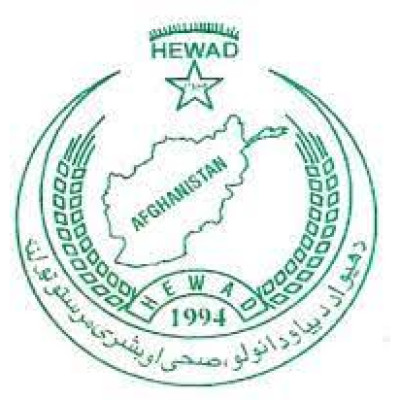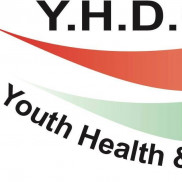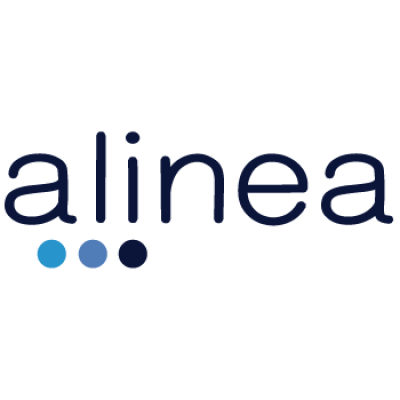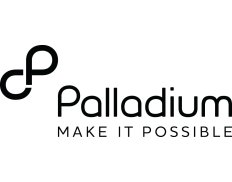Details
Description
Background
Background and Justification
UN Women, grounded in the vision of equality enshrined in the Charter of the United Nations, works for the elimination of discrimination against women and girls; the empowerment of women; and the achievement of equality between women and men as partners and beneficiaries of development, human rights, humanitarian action and peace and security. For a seventh consecutive year, Afghanistan remains among the deadliest places in the world to be a civilian and faces an emerging level of human rights violation.
The Taliban takeover of Kabul on 15 August 2021 has had a seismic impact on Afghanistan. With the shift in political power, the future of women from all walks of life who have shaped the fabric of the country over the past 20 years, is unknown. The conflict dynamics in the country are multi-layered, and Afghanistan’s people are facing the devastating effects of a protracted conflict, increasing poverty and natural disasters, all of which are amplified by the impact of the COVID-19 pandemic. There are some 5.5 million internally displaced persons (IDPs) in Afghanistan, and approximately 80 percent of nearly a quarter of a million Afghans forced to flee since the end of May are women and children. (1) 2021 has to date been one of the deadliest years for Afghan women and girls, with more women and more children killed and injured than ever before recorded by the United Nations Assistance Mission in Afghanistan (UNAMA) for the first half of any calendar year. (2) More than 18 million people – fully half of the country’s population – are in need of humanitarian assistance, and almost a third of the country is facing emergency levels of food insecurity compounded by severe drought.(3)
Amidst a rapidly evolving political, security and COVID-19 situation, the UN Women Afghanistan Country Office (ACO) is working on consolidating its programming under the humanitarian-peace-development nexus, anchored in its country Strategic Note (2018-2022). The key priorities for the next 6 months are i) Protection services to women survivors of violence; ii) Cash Based Initiatives, including cash for work and non -conditional cash grants; iii) rolling out Multipurpose.
(1) IOM appeal for Afghanistan, 26 August 2021 (https://www.iom.int/news/usd-24-million-urgently-needed-acute-humanitarian-needs-afghanistan); UNHCR, 13 August 2021 (https://www.unhcr.org/news/briefing/2021/8/611617c55/unhcr-warns-afghanistans-conflict-taking-heaviest-toll-displaced-women.html) and OCHA, Internal Displacement in Kabul, 15 August 2021: https://reliefweb.int/sites/reliefweb.int/files/resources/flash_update_4_-_internal_displacement_-_kabul_15_aug_2021.pdf
(2) UNAMA: Afghanistan. Protection of Civilians in Armed Conflict Midyear Update: 1 January to 30 June 2021 (https://unama.unmissions.org/sites/default/files/unama_poc_midyear_report_2021_26_july.pdf)
(3) OCHA, June 2021 (https://www.unocha.org/story/daily-noon-briefing-highlights-afghanistan-3)
Women Protection Centres to respond to humanitarian needs and iv) Strengthening protection Women Human Rights Defenders.
UN Women Afghanistan focuses on reaching women who are most at risk and marginalized populations, in particular gender-based violence survivors, female headed households, women IDPs and returnees, women with disabilities, older women and adolescent girls. Women, who comprise more than half of the population in Afghanistan have been hit hard by this crisis, especially women who are unemployed, women suffering from poverty, women-headed households and women in rural areas who’s their livelihoods and income generation activities have been disrupted or lost. These women will be supported through livelihoods interventions
UN Women will support women in target areas, including in host communities and informal settlements, to secure alternative sources of income through livelihoods opportunities including Cash Based Interventions and development of capacities and skills. This will provide women with emergency livelihood protection and support—urgently needed given a looming economic collapse and associated crisis in the formal banking sector. This is in addition to Cash for Work and unconditional cash transfers which will be addressed to specific groups of women depending on the extent of needs mainly women- headed households across the country.
There is an urgent need for a technical expert to work on livelihoods programming modalities design, implementation, and close follow up in targeted province/ provinces.
Duties and Responsibilities
Objective: Reporting to the Programme Manager/ Women’s Economic Empowerment, the Livelihoods Specialist will be responsible for formulating, planning, implementing, and managing UN Women’s livelihoods interventions. The Livelihoods Specialist works in close collaboration with the Women’ Economic Empowerment and Ending Violence Against Women and Humanitarian teams internally, as well as with multi and bi-lateral donors and civil society to ensure the formulation and development of locally appropriate and gender-responsive interventions to improve Afghan women’s access to life-saving resources.
Project Development
Support the roll out of the preliminary market analysis and the women’s led business assessment as relevant to identify target population and priority locations, potential partnerships, and delivery options. This should also factor in potential risks with proposed mitigation mechanisms
Manage and coordinate the pilot project for the cash for work for women along with continuous follow up on the implementing partner’s progress across the select provinces
Manage, review and advise the development program documents and strategies on livelihoods interventions. based on existing good practices and operational tools and guidance
Draft technical inputs to concept notes, proposals in line with UN Women livelihoods program approaches and current good practices
Contribute to program management support processes- including partnership selection process, reporting and monitoring
Support development of workplans, results framework,
Support drafting and contextualizing/ localizing program documents, country strategies, and knowledge products.
Contribute to and advise on programmatic approaches
Partnership Building
Build and maintain alliances and strategic partnerships with key actors (including partner UN agencies and civil society as well as private sector and academia) to ensure smooth implementation of business and livelihoods initiatives
Participate in Food Security and Agricultural Cluster to inform the joint response and planning framework on livelihoods programming
Implementation and Monitoring
Develop monitoring framework for proposed livelihoods’ programming interventions
Provide advise specifically on the feasibility of safe livelihoods programming, which includes advise on strengthening collaboration to reach women in need and at risk, across WEE, GIHA, EVAW and WPS pillars
Undertake daily monitoring and quality control for all livelihoods projects through close follow up to the field staff and other national team members as well as implementing partners
Contribute to enhancement of the implementation of UN Women's livelihoods interventions
Provide technical inputs and feedback to support the implementation of the overall UN Women response
Support the office in completing internal and joint UN coordination reporting requirements
Strengthen the capacity of the CO program staff to effectively pursue the successful implementation of the livelihoods various programmes
Produce situational and analytical reports as well as progress reports
Knowledge Management
Identify and disseminate lessons learnt and good practices on gender-responsive livelihoods’ interventions in Afghanistan
Ensure technical skills and knowledge are shared amongst and within UN Women Afghanistan and Asia Pacific RO as relevant
Undertake any special assignments required by the Programme Manager regarding quick assessments, and in-depth analyses of specific case/s.
Workplan to cover the three months assignment, to be approved by the WEE Programme Manager (within 2 working days)
Progress report on implementation of women’s led business interventions based on findings, recommendations, risks, and mitigation plan as presented in the preliminary market analysis. Deliverables include identification of target population and priority locations, provision of technical support to Responsible Partners and monitoring and reporting on deliverables. (12 working days – 4 days per month)
Final Standard operating procedures (SOPs) for business planning and Women-Led SMEs in line with the provincial context and strategic priorities (2 working days)
Technical inputs into livelihoods programming for the women economic empowerment and Humanitarian portfolios including mapping and identification plans for those in need and ensure inclusive and fair participation (3 working days – 1 day per month)
Consolidated data on livelihoods opportunities and stakeholders dataset based on market and Needs assessment on women’s livelihoods collected by Field Office, other UN Agencies and partners and present a concept note on way forward (5 working days)
Manage, review, and advise the development program documents and strategies on livelihoods interventions. based on existing good practices, operational tools and guidance, including contextualizing/ localizing program documents, country strategies, and sharing knowledge products. (4 working days – 1 day per month)
ToR with call for proposal for a responsible partner to roll out of VSLAs model and financial education among women entrepreneurs and cash for work beneficiaries (5 working days)
Technical inputs to concept notes and proposals in line with UN Women livelihoods program approaches and current good practices (4 working days – 1 day per month)
Mid-Term Report to highlight the progress on activities including Progress Monitoring and quality control reports for ongoing livelihoods projects based on onsite visit and field staff feedback as well as implementing partners
(3 days)
Contribution to program management support processes- including development of workplans, results framework, partnership selection process, reporting and monitoring as well as knowledge sharing and capacitating WEE program staff and sub-offices staff to effectively pursue the successful implementation of the livelihood’s interventions. (6 working days – 2 day per month)
Field mission report including scoping highlights with provision of technical advice to the field staff, CSOs and IPs (5 working days/ 1 days per province at least)
Mapping of private sector including financial institutions for the sake of female employment and creating partnerships/ MoUs with two private sector companies at least (5 working days)
Data collection, analysis tools, checklists, and/or guidance on the do no harm risk assessment, mitigation, prevention and response to the implementation of livelihoods at the provincial level (4 working days)
Strategic inputs to guide UN Women participation in Food Security and Agriculture Cluster and other associated working groups. (3 working days/1 day per month)
Final Report including all the above-mentioned deliverables and lessons learnt to be approved by the WEE Programme Manager, not later than one week of completion of the assignment (3 working days)
Competencies
Core Values:
Respect for Diversity
Integrity
Professionalism
Competencies
Excellent grasp of substantive gender equality and women, peace and security issues relevant to peace processes
Substantive experience in conducting research and writing for international organizations on women, peace and security. Specific experience on women’s meaningful participation in peace processes is an added value.
Excellent writing skills. Strong publication record on issues including gender equality and women, peace and security.
Corporate Competencies:
Demonstrates integrity by modeling the United Nations' values and ethical standards;
Promotes the vision, mission, and strategic goals of the UN and UN Women;
Displays cultural, gender, religion, race, nationality and age sensitivity and adaptability;
Ability and willingness to work as part of a team to meet tight deadlines and produce high quality work.
Functional Competencies
Strong background in livelihoods Programming;
Strong understanding and knowledge of early recovery and sustainable livelihoods Programming;
Strong programme formulation, implementation, monitoring and evaluation skills
Strong knowledge of Results Based Management
Ability to synthesize programme performance data and produce analytical reports to inform management and strategic decision-making
Excellent research, analytical and writing skills;
Ability to think and work logically and work precisely with attention to detail;
Initiative, sound judgment and demonstrated ability to work harmoniously with staff members of different national and cultural backgrounds;
Ability to work independently and meet tight deadlines in a high-pressure environment.
Required Skills and Experience
Education and certification:
Master’s degree or equivalent in gender, international relations, international development, or other social science fields is required.
A first-level university degree in combination with two additional years of qualifying experience may be accepted in lieu of the advanced university degree
A project/ programme management certification would be an added advantage
Experiance:
At least 5 years of progressively responsible work experience at the national or international level in design, planning, implementation, monitoring and evaluation of livelihoods preferably in humanitarian contexts;
Technical experience in drafting concept notes and proposals mainly on livelihoods;
Experience coordinating and liaising with bilateral and multilateral organizations agencies and/or donors;
Familiarity of the Afghan context will be an asset
Experience working in the UN System is an asset;
Experience in leading/managing a team is an asset;
Experience working with multiple partners within the UN Country Team.
Ability to work independently and deliver on tight timelines.
Outstanding partnership skills, particularly with civil society organizations
Language Requirements:
Fluency in written and oral English is required
Knowledge of Dari and/or Pashto would be an asset
Additional UN language is an asset.





